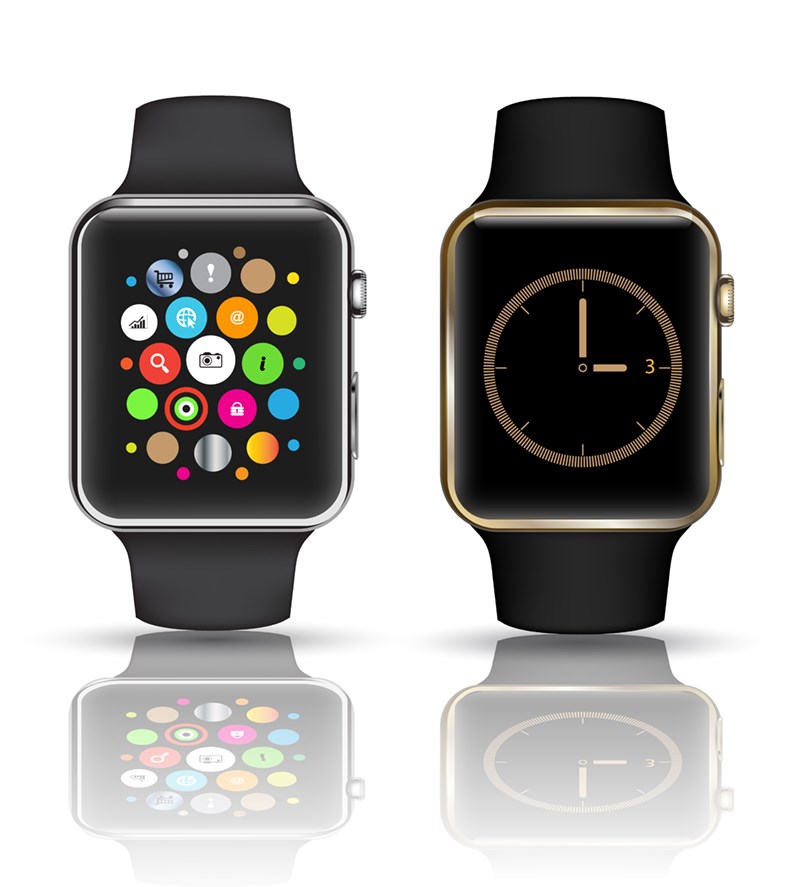Innovation means adaption. But not always.
Today marks a huge milestone in the tech calendar - the Apple Watch is now available at a store near you. We've known about it since September 2014, but we're not sure how much will change once it hits the market, all we know is that everyone is very excited. Whilst we've been adapting to users becoming more mobile, has Apple just given us reason to throw our plans in the bin and start over again? It would appear not.
Where are we now?
Based on a recent survey of 100 digital marketing decision makers in the UK, Greenlight found that a staggering 64% of respondents consider themselves to be on par with their competitors in terms of tech adoption and usage, with 14% seeing themselves as being ahead of their competitors. Such confidence seems to suggest that businesses have strongly adopted innovation and new technologies, however our research shows that only 44% of companies have a fully responsive website. This is a real testament of the time, money and effort required to stay current and relevant based on consumer attitudes. Our intent may be good, but realistically the decision needs to be taken on what is worth investing in, and what isn't.
While we're wholly aware of how important it is to adapt for mobile devices, Andreas Pouros, COO and Co-Founder at Greenlight, notes that it would be a huge gamble to invest in developing apps for the Apple Watch just yet as its success and adoption rate is unproven, despite the hype and sales predictions dominating the headlines. This is underlined in our findings where only 19% of marketers have ordered or plan to buy an Apple Watch, whilst 57% have no interest in buying one.
Fundamentally, the main areas of concern when it comes to investing in emerging technologies are that they will not lead to growth (24%) or add much in terms of meeting expectations (13%), whether due to errors such as backing a less popular brand choice which is less prominent in the market (12%), unforeseen changes leading to the technology not taking off (8%), or jumping on the bandwagon too soon (4%). With so much at risk, is it any wonder that less than one in ten marketers plan to use wearables and smart watches in 2015?
Despite the fear that something may not be worth the investment, 8% of those surveyed are getting ready to build an app for the Apple Watch, with 32% considering taking the leap too, following in the footsteps of brands such as BMW, the Guardian and British Airways. While the Apple Watch opens opportunities for short and personalised consumer interactions, our research shows that many businesses think that wearables and smart watches are overhyped (70%), potentially because there is no clear link in how this new product will add to their main business priorities. It's this uncertainty that tends to slow businesses down when it comes to adapting to new trends, explaining why more than a third are yet to fully update their services for mobile devices, let alone smartwatches.
Is the future bright for the Apple Watch?
Our research shows that the novelty of the Apple Watch may be outweighed by the reality that it may not really be used any different than a mobile device. It's anticipated they'll be used to deliver notifications (62%), make contactless payments (56%), send emails or messages (48%), and do some online shopping (29%). Such features don't necessarily bring anything particularly novel to the table outside of what can be done through a mobile device, explaining why 60% of respondents have no intentions of investing in Apple Watch technology in 2015. The results are clear, the Apple Watch may be a cool new product, but until there is demand for developing an app for it, it would be a risk to invest in it.
Considering only two thirds of businesses have fully optimised their websites to be mobile friendly or more searchable, Andreas Pouros' recommendation is to focus on these areas given that 50% of all searches are made on a mobile device. There is still some low hanging fruit that marketers are looking to focus on in 2015 such as mobile messaging apps and video apps which are tried and tested methods of engagement with consumers. Despite the undisputed level of innovation the Apple Watch is bringing to the table, it's not looking likely that it will truly disrupt the market in terms of consumer usage patterns or tendencies. Marketers, recognise there is a new device in town, but no need to scrap your plans for 2015.

